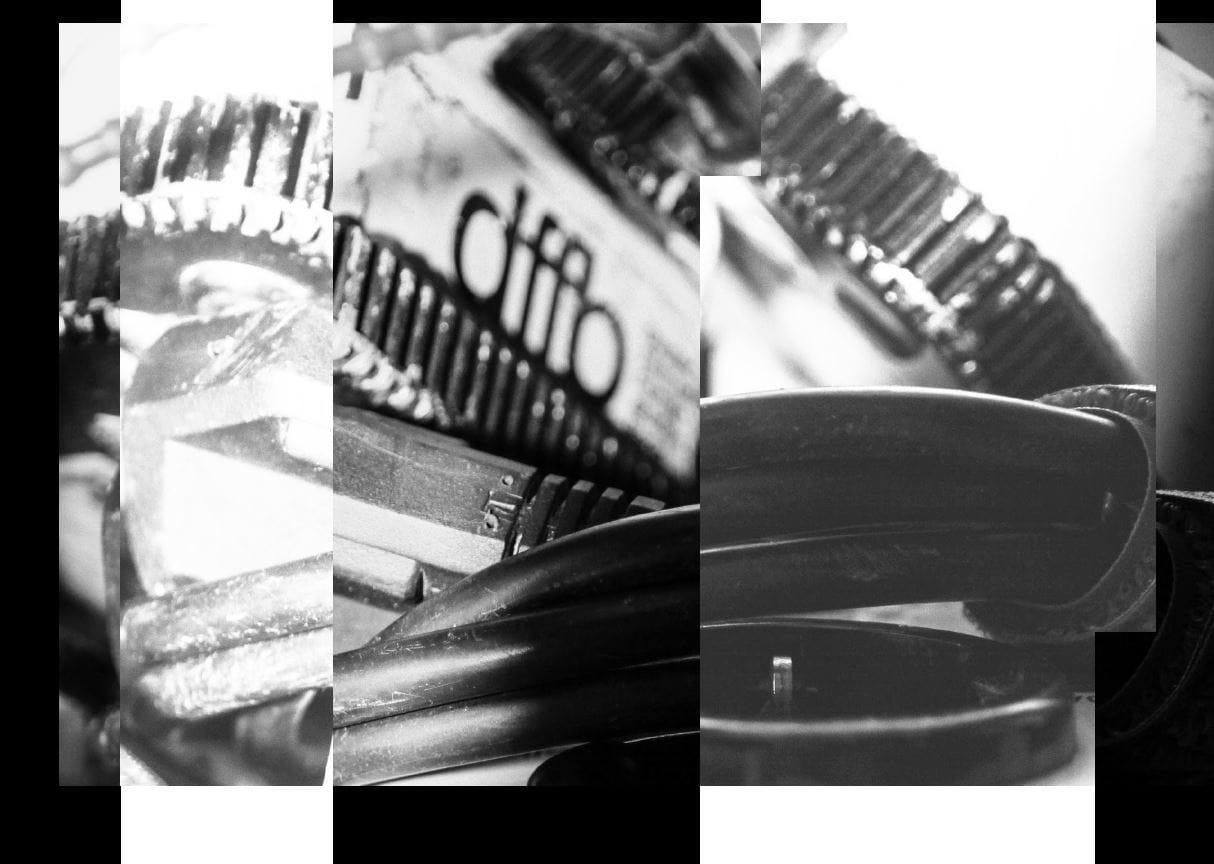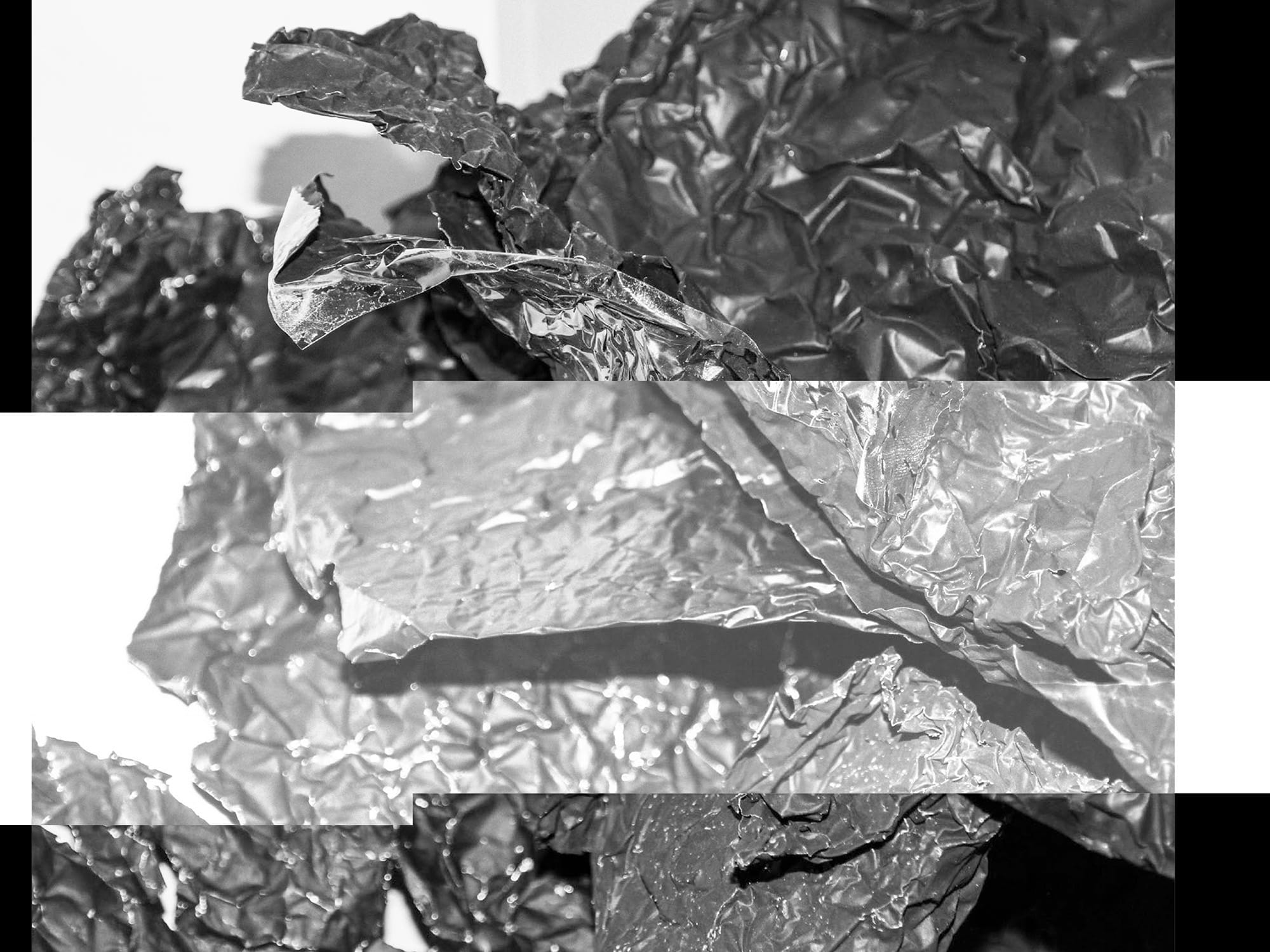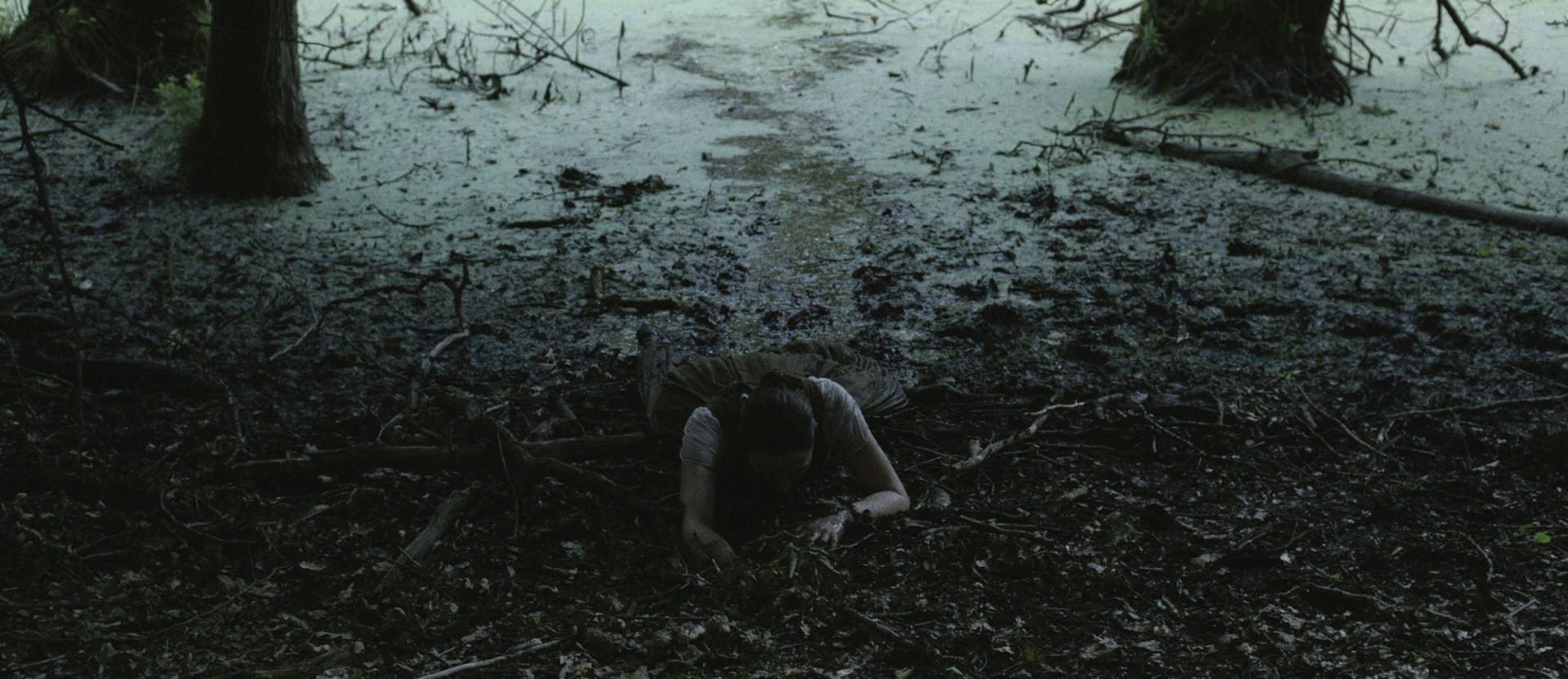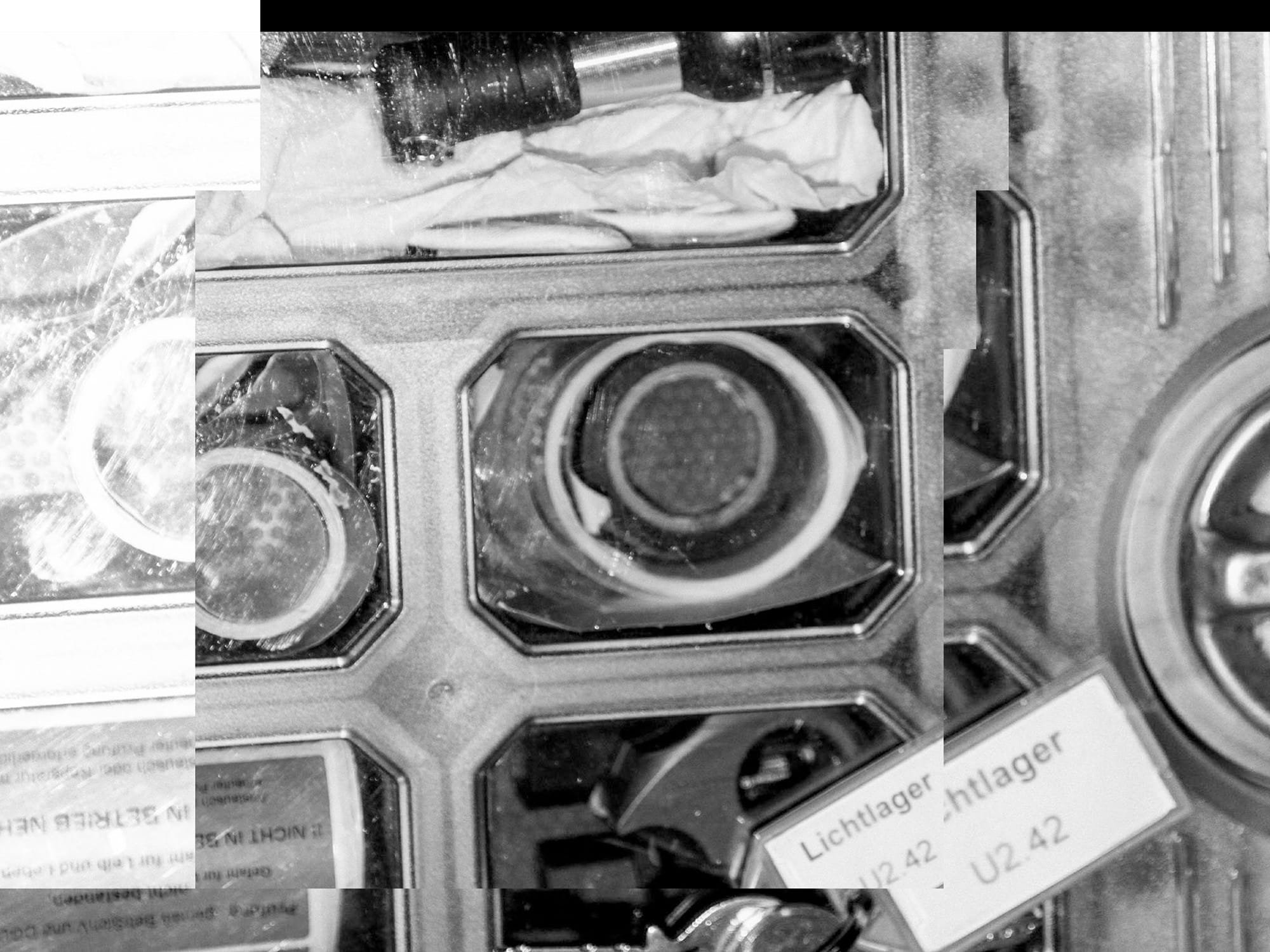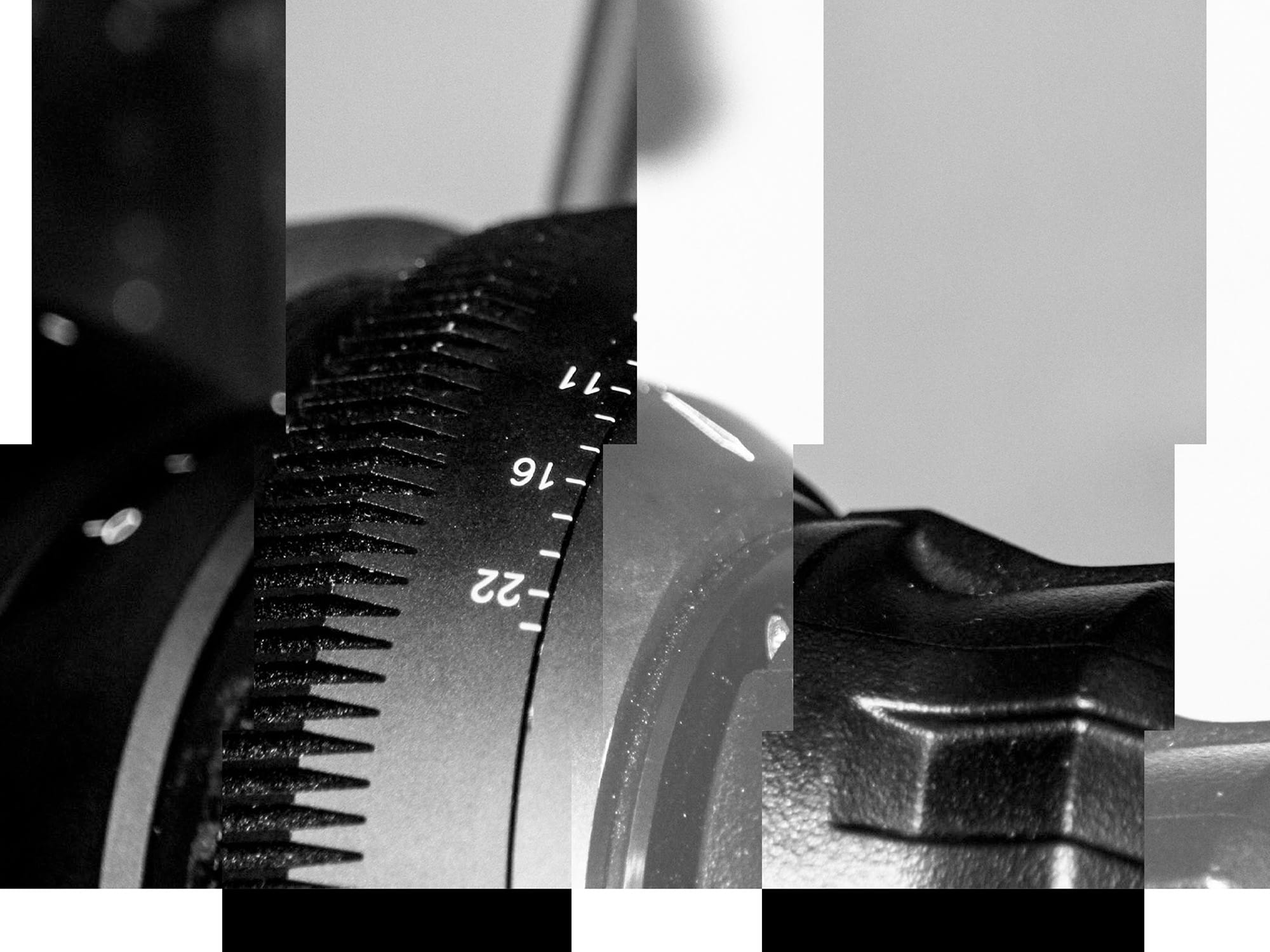Dear graduates, I would like to start by saying that I never completed my studies. In fact, the time I spent studying wasn’t even very happy. But despite all that, I became a filmmaker and, today, I would like to explain how that came to be.
It started when I applied to the director programme at Filmakademie Wien (Film Academy Vienna), but I was encouraged to join the editor programme due to my appearance and due to my sex, which made them think editing was a better fit for me. And so I joined the editor and director programmes, and was bad in both. I think a lot has changed since then, even in Vienna. But back then, I found myself in an environment that was full of non-artistic teachers and technicians, who were generally convinced that a young woman could not handle the job. I should add, however, that I was fresh out of school at St. Ursula and 19 years old when I joined the Filmakademie. My face turned red whenever I had to say something out loud, and even I had the feeling that I didn’t belong there. In addition, my professor of film directing told me that it would be better to get married than to end up like all the unsuccessful film directing students who never became proper directors. I should also mention, that back in the mid 1990s, there wasn’t much happening in the film sector in Vienna. Most went to television. So why should I of all people be able make it? The odds were really stacked against me.
Back then, my main problem was that I couldn’t accept the tasks that were given to us as students. No matter how hard I tried, I couldn’t see any sense in filming a chase scene and a workplace scenario. Whenever there is a chase scene in a film, I always think of something else because they seldom interest me and I never know who is chasing who. I have a bad sense of direction. Whenever I go to the restroom at a restaurant, I usually can’t find my way back. I’ll end up in the kitchen or leave the restaurant through the emergency exit.
The films we analysed were American genre films, all filmed by men. I couldn’t relate. I loved films that were mysterious and surreal. Maya Deren, for example, or Buñuel. And I was interested in style and aesthetics. In cinematic language. But I was apparently looking for a language that was not spoken or taught at the film academy. We were supposed to learn the so-called rules first – before we were allowed to break them. It’s an idea that I still find ridiculous, because who is it that defines the rules? Syd Field? Why him? Because we grew up with these films? Who says that cinematic language can’t be totally different? Maya Deren, of course, was only dealt with marginally in an optional class. But those were the only films through which I was able to understand how editing works.
Anyway, nobody paid much attention to my chase scene, and after my practice films, it was recommend that I drop out of the academy. I had already failed the editing programme, because I didn’t edit my projects the way I was supposed to.
My highest or lowest point was in the seminar for voice recording. We were asked to dub a bad love scene in the style of a television show from the 1980s. I was totally out of my element. I didn’t know what to say to the voice actors. I wasn’t able to take it seriously, and so I couldn’t think of one single direction to give them. The voice-dubbing director who led the seminar gave everyone some feedback at the end to let them know what they did well and what they did poorly. In the end, he said that only one student failed completely – and he pointed to me. I can admit that this was a low point for me. I didn’t graduate in film direction and had to repeat a semester. Just think about it: I wanted to be famous and make great films, but I wasn’t even good enough to complete my studies in film! And so I repeated a semester, shot a film twice, and during this whole, unbelievably depressing scenario, something became slowly clear: I had to get out of there. Then my professor of film directing died, which set me free for a time and I took a leave of absence. I was scared that nothing would become of me. That the others could make films, but I couldn’t. I flew from Vienna to Berlin, worked as a trainee in a film, and worked on a screenplay in the evenings. When I got back to Vienna, I showed my new professor the script and he said that the most important thing was that I liked it, and that I had to know the story that I wanted to tell, but I had to know it exactly and to make it happen exactly as I wanted, without letting anybody influence me.
That struck me to the core. No one had ever said something like that to me before. It was always about fulfilling a certain task, or to suit someone’s particular taste. And suddenly somebody was telling me that I should do exactly what I intended to do. That and only that. The script’s title was Flora and it became a 20-minute film, and I was happy while I was shooting it. I could feel that I was able to realise my vision. My previous weaknesses (realisation, spatial orientation) suddenly became my strengths, because I chose a scenic realisation that worked without any spatial orientation. And that’s how I continued to do it as a filmmaker. I use my inability as an asset: since I don’t have good spatial orientation, my scenic realisation must work emotionally. The people and their feelings are focus points within a space, the internal dramaturgy is my orientation system and film editing is a wonderful means to connect places and times that could have never been connected, because they belong together emotionally. Like in Maya Deren’s films.
There is also my inability to create excitement through speed. Today, I create excitement through a threat that I let develop within the head of the viewer by means of a strange idea that takes time to develop its full effect.
After my experience with the voice actors, I worked for a while with amateurs, in order to discover for myself what I wanted to say to actors, what was real for me, what felt real and what style of acting I would choose. And suddenly it was clear to me that it was a good thing that I couldn’t do what others could do. It forced me to find my own way of making films. I had to discover everything for myself.
I learned stylistically from the amateurs and now I work with professional actors, but I still act as if they were amateurs. I don’t give up on casting until I have found the person who embodies the role, who fits perfectly, who naturally acts exactly as needed for the role. I treat actors like amateurs. And when an actor asks for the backstory, I delay the discussion until the clapperboard strikes and we’re shooting.
So what I’m trying to tell you is that I wasn’t able to do what was expected of me, but that led me to do something differently and the audience liked it. And I would also say that if I had done things according to expectation, it would’ve been bad. That was confirmed already at the beginning of my studies.
Today, this all sounds like a good story, like the ugly ducking that finally finds his swan family. But back when I was in this hopeless situation, I had no way of knowing that everything would work out in the end – there is no way of knowing what the future may bring. But looking back, I can say that it was necessary for me to fail at following all these supposed rules. It was necessary to fail at film directing in order to understand that I couldn’t do it the way anyone wanted me to. Not because I didn’t want to, but because I couldn’t!
I would like to add another chapter to my story. So I was able to shoot my short film Flora. I was happy, but I had already been singled out as a loser at the film academy. The film had to first gain recognition elsewhere – Flora won some prizes at international film festivals – and then people started treating me with more respect. I later shot a film for my graduation, and it was also successful at festivals. This helped me get financing for my first feature film: Lovely Rita. And so I seemed to be on my way. I had survived the film academy and become a filmmaker.
Then I shot a film called Hotel: the idea was to shoot a genre film that went against the genre. It is a mystery thriller that never resolves the mystery, and a horror film without a monster. When the film was finished, public opinion was split. Some were aggressive and annoyed. Users left comments on the film’s website like; “it’s like jaws without the shark,” or “I want my money back.” Global sales were disappointing and I had to deal with a lot of criticism.
And I was disappointed, because it seemed as if the film hadn’t been understood. But the only reason to make the film was that there was no monster! I was – and still am – convinced that the idea was good, but maybe my realisation of the idea wasn’t good enough. But now, 15 years later, I’m going to try to make another film that breaks the rules of its genre. The viewers’ expectations will not be fulfilled, so that the film takes an unexpected turn.
What’s interesting is that most people who read the script will make recommendations that would make the film conform to the expectations of its genre. And they make these recommendations thinking that they are their own good ideas. Of course, it makes things easier when something has already been stamped as “good” by the general public. Most people don’t realise that they just want to see something that they’ve already seen before, and that’s the way things should be! But I want to take the risk of not fulfilling viewer expectations: to do something where you are not sure whether it will work or the audience will like it. Only later can you look back and say if it was worth the risk. But in the current moment, you can never know for sure if something will work.
My experience at the film academy showed me that if I follow my own plan, the individual pieces will come together in the future and form something that I cannot yet see. Something that seems wrong can turn out to be correct, true or good in the future. These are all very relative terms that are defined by the times.
I can only pursue things that interest me personally. It is the only way to create something that will also interest others, or that others will find good and exciting.
While I was studying, I couldn’t follow the so-called rules of good filmmaking. And I feel that it is my duty, now, to tell you that you won’t be able to do it either. You shouldn’t be able to do it. Because no matter what happens, you will only do a good job if you are doing what you truly love and if you are fully convinced of what you are doing. Trying to be like someone else is a recipe for failure. Because you’re only doing something that someone has already done! You will only find success by doing something very personal that you want to do and love very much. That is why I want to ask you to do something: keep looking. Don’t repeat something just because it worked well in the past. Rediscover filmmaking on your own terms and reinvent the wheel. You – and all of us – will be amazed at what you can achieve, and you will look back and say that it was obvious that things would work out the way they did. But now, at this moment in your life, I hope that you will have the courage, and not accept what other people are saying. Every day, you should consider the possibility that everyone else is wrong.
Jessica Hausner made this speech on 10 June 2017 at the DFFB diploma ceremony at Weddinger City Kino. Thanks to: Ben Gibson.


